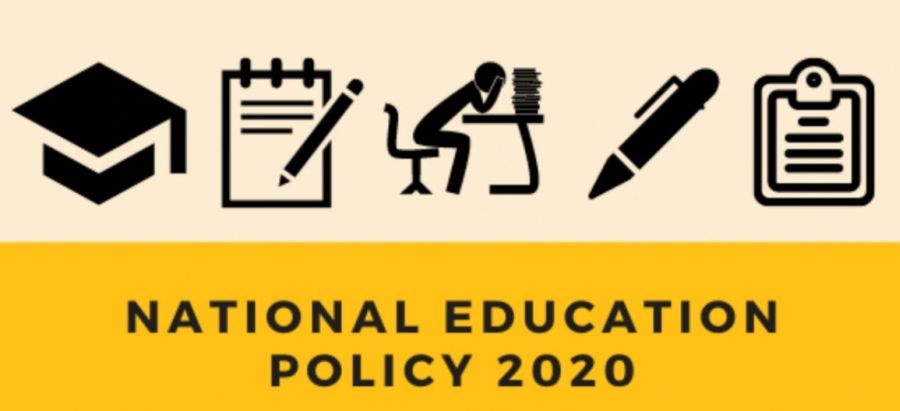
Besesayo Kezo, IPS,
Retd DGP
Approach to the new National Education Policy 2020 is a progressive and ambitious policy statement by the government of India in its attempt at overhauling and revamping much needed structure of the education system. It envisages introducing drastic changes in restructuring the education system; right from the primary stage to the university level replacing the present system of 10+2 by 5+3+3+4 and Bachelor’s Degrees, MA and M Phil by Graduation Certificate for the first year, Diploma for the second year, Degree for the third year and Research for the fourth year. Those students with Research Degree can register for PhD. Students will also have the options to choose a mixture of subjects depending on their aptitude and ability. The foundational and preparatory stages will not be burdened with exams or reading or writing but mostly learning through aptitude capabilities of children where they learn by practicalities making more worldly sense and education fun. This will be followed by introduction of learning mother tongue or regional language, vocational training and critical thinking, with no compulsion to learn a particular language. The present rigid separate streams like science, commerce and arts will be eliminated. Students can have multidisciplinary subjects and courses made more job-oriented. The system will be made flexible enough to help students allowing to shift or halt at any stage without hurdle. It has been made compatible with reputed international universities and they will also be encouraged to open their branches in India with conditions. The teachers will be trained and oriented for the new system by the government. The board examination system will be made much simpler and less stressful by introducing semester and internal assessment system, but the administration will become more centralised. The government will increase the budget from 3% to 6% of the GDP. That is the broad view of the new system.
Now let us examine how it will affect our children when implemented. It appears that the present policy has shifted from the British system of education to the American. The quality of education and intention of the government will be known only after the syllabi are designed and implemented. Also, critical thinking and dogmatism are antithetical. Free thinking and expression are necessary for the development of scientific temper. Nevertheless, we may anticipate the following results. First, transfer of children from one state to another at primary and secondary stages will be very difficult because of different languages if we don’t have the optional language. Secondly, learning of the English language is directly discouraged as it will not be a compulsory subject anymore. Students may find themselves less competitive without the knowledge of English. India may lose her competitive edge in the international market in future. China has got language problems because many of them cannot speak, read and write in English like Indians. India will lose that advantage. It may drive away a section of the students from government schools to private for learning English which will go against the economically deprived section of our people. Thirdly, the discouragement of private institutions to earn profit may force closure of many schools and colleges to the detriment of students. Fourthly, it is silent about reservation policy of 25% for ST/SC. Fifthly, no special provision for students from poor background. Sixthly, the right to education may be diluted as the minimum facilities to be provided by the institutions are not specifically indicated. Seventhly, it is also silent as to how to deal with commercialisation and privatisation of education. Eighthly, the multiple choice selection may lead to a wrong combination of useless ones. Lastly, the ambitious plan has promised to increase the funding from 3% to 6% of the GDP but how it is going to be implemented is still uncertain. Many poor states may not have the infrastructures and money to finance the new policy. Education is in the concurrent list in the constitution of India, the state has got a great role to play. The government of Nagaland must discus all the pros and cons thoroughly, especially, on language learning. The tribal pride and regional chauvinism should not be allowed to dictate the policy of the education department. Learning and preserving mother tongue must be left to academicians and research scholars and not impose on young children that may overcrowd their little mind, stunt and impede their development. We have become what we are largely because of our ability to speak, read and write in English. We must also learn Hindi as the lingua franca of India. Thus apart from learning the mother tongue with optional subject in lieu of it, preferably, English, our children must learn three languages namely, English (compulsory), mother tongue (optional) and Hindi (compulsory). We must protect and promote English learning at early stage in our state focusing on the future scope of our children. We cannot compete with other Indians in their language but we can do it better in English because we are all equally disadvantaged at it. Moreover, knowing English provides us access to the world of knowledge like no other language in India. All the professional and technical books are written in English. It is no longer the language of the people of England but has become the international language. We should not fall prey to the Hindi enthusiasts or political propagandists. Let them be. These people send their own children to English medium schools or to study abroad. We must resist the temptation of diluting the importance of learning English because the future of our children is paramount. They must be protected.





